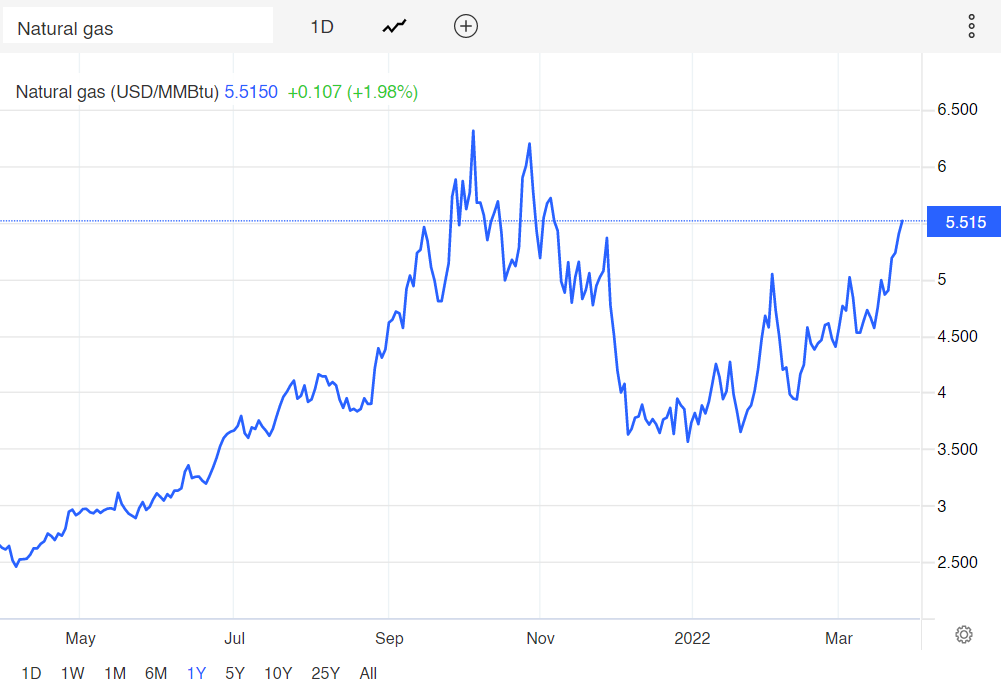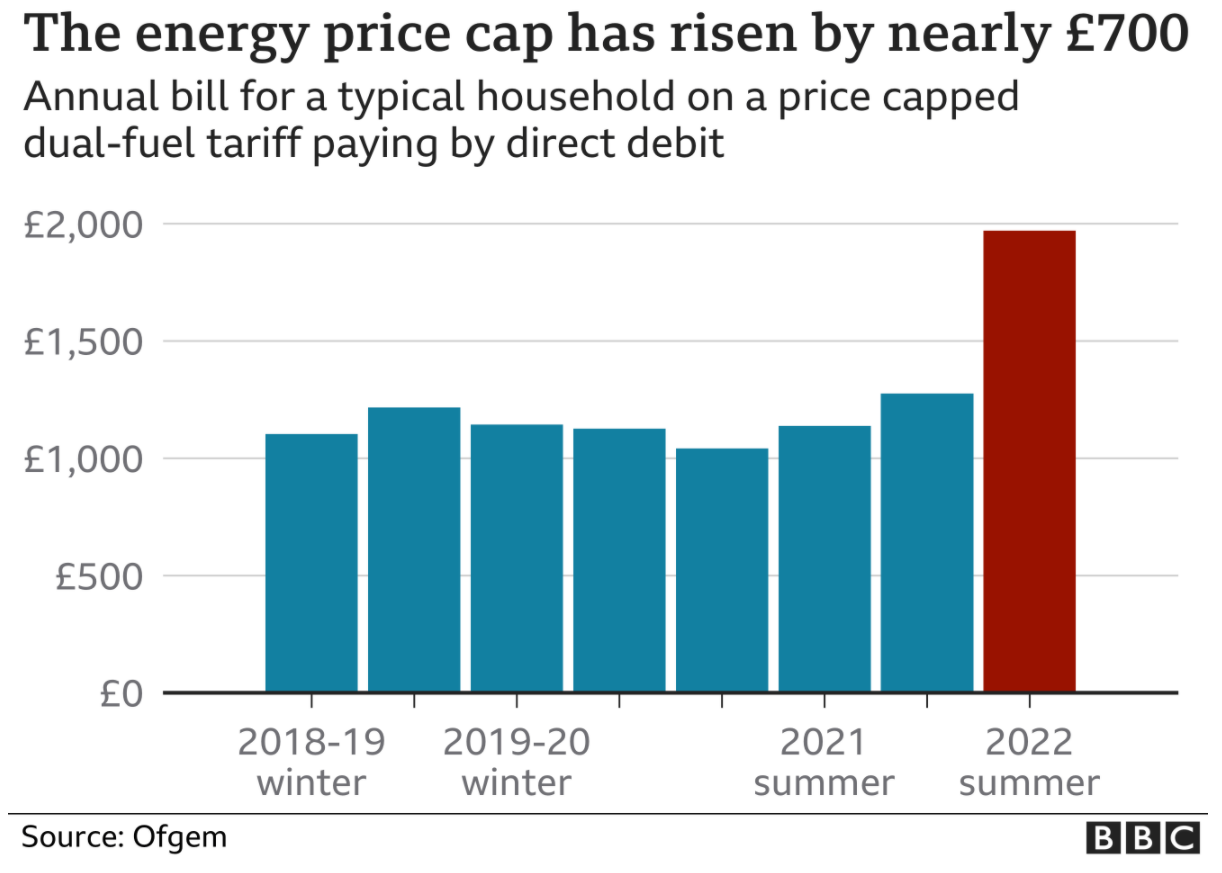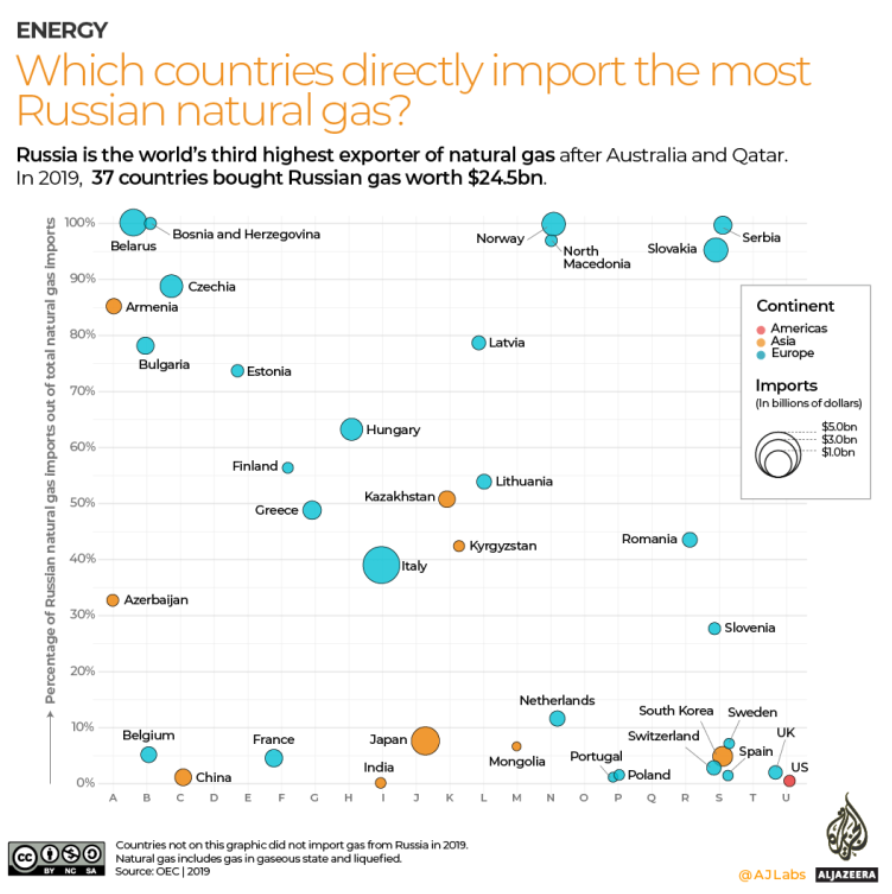The Energy Transition is at a Crossroads
10 Min Read
On the 24th of February Russia invaded Ukraine, starting a bloody war that has shaken old notions of European security and sparked a humanitarian crisis.
10 million Ukrainians have been forced to leave their homes, almost a quarter of the entire population, either to flee to the West of Ukraine or to neighbouring nations. Meanwhile, thousands of soldiers on both sides have been killed, as well as hundreds of Ukrainian civilians due to Russian bombardments of population centres like Kyiv and Mariupol.
The response to the war has been just as seismic with heavy sanctions hitting the Russian economy, first the banking sector and eventually the heart of Russia’s wealth, energy.
In this blog, we explore some of the clashing issues brought to a head by Putin’s invasion, from the effects on oil and gas prices, the costs to consumers, security implications and the effect this could have on the energy transition.
As the team at Global Optimism discussed in a recent podcast, it seems like we face the choice between facing an acute crisis (Russia’s invasion and the energy price shock) and a chronic crisis (climate change). But that is a false choice, in fact, we have to tackle both.
Oil & Gas prices have skyrocketed
Before official sanctions on oil and gas were imposed by any Western nations, buyers of fossil fuels were already beginning to “self-sanction” by refusing to buy Russian exports. Either due to concerns that they would be found on the wrong side of future sanctions or because they did not want to be seen to be fuelling the escalating war. Now, after a fitful start, most oil and gas majors and oilfield service companies have left Russia.
The crisis, and speculation about how bad the crisis could get, has caused a spike in oil prices, from $94 per barrel on the day the invasion began, to $128 on March 8th. At the time of writing the price has dropped back to roughly $120 but it remains incredibly volatile. The price of gas had already been at record highs before Russia invaded and continues to rise.
Natural Gas price. https://tradingeconomics.com/
Brent Crude Oil Price. https://tradingeconomics.com
These price increases have filtered down to the consumers, with petrol prices rising to almost 150 pence per liter and home energy prices in the UK set to rise by a staggering 54% in 2022, adding to an already soaring cost of living crisis due to post-pandemic inflation
Cost of Petrol in the UK. https://www.statista.com/
What has the international reaction been to the energy crisis?
Almost the whole world has condemned the invasion. Yet the extent to which individual countries have broken with the Russian energy industry has varied.
The United States announced it would ban the import of Russian oil and gas and on the same day Prime Minister Johnson announced the UK would phase out the import of Russian oil and gas by the end of 2022. Both countries do import Russian fossil fuels, but they are far less reliant on Russia than, for instance, the EU.
The EU has said it will cut Russian gas imports by two thirds this year, and wean itself off completely by 2025. The reason it cannot cut itself off immediately is due to a gradual build-up of reliance leaving it currently importing 40% of its natural gas from Russia.
Germany is heavily reliant on Russian gas in particular. As the invasion began they announced the cancellation of the latest gas pipeline from Russia to Germany, Nordstream 2, but they have continued to import Russian gas through existing pipelines. 55% of Germany’s gas comes from Russia, and replacing that instantly is an almost impossible task. At the same time, Germany is bringing forward the date it hopes to reach 100% renewable energy to 2035, but is still reliant on Russian natural gas and even coal in the meantime, a reliance that is not helped by its decision to phase out Nuclear power plants before their scheduled end of life.
Across Europe and the US, a reframing of energy in terms of national security is also underway, with President Biden saying in a recent speech in Poland:
“Over the long term as a matter of economic security and national security for the survivability of the planet we all need to move as quickly as possible to clean renewable energy and we’ll work together to help get that done, so the days of any nation being subject to the whims of a tyrant for its energy needs are over. They must end.”
Could countries end up burning more coal?
Coal has been on a long decline in Europe and the US, but rising gas prices and now an urge to reduce demand for natural gas due to the war has led for some calls to temporarily increase coal production. For instance, Italy’s prime minister announced:
“Coal-fired power plants may need to be reopened to fill any shortcomings in the short term”
China is continuing with plans to build 43 new coal plants and may end up relying on coal while prices for gas remain high. China may also end up importing more Russian Oil & Gas due to the West’s reluctance to buy from Russia, potentially at a steep discount.
But in Europe at least, the hope is that any move to coal would be temporary, as the deputy EU commissioner Frans Timmermans put it:
“Poland and several other countries had plans to transit out of coal, and then temporarily use natural gas and then move to renewables. If they stay longer with coal, but then immediately moved to renewables, it could still be within the parameters we set for our climate policy”
But coal is not a clean solution, it is not even a geopolitically easy one. Where do you think Germany imports half of its coal from? You guessed it, Russia.
Is increasing domestic oil & gas production the answer?
Unsurprisingly, some groups have jumped on the crisis to call for big increases in domestic oil and gas production to make up for the shortfalls bans on Russian imports will cause.
In the UK major newspapers have run op-eds calling for an end to the moratorium on fracking and increasing oil production from the North Sea. Presumably so that this oil and gas can go to UK consumers and lower the prices at the pump and on bills.
Similarly in the US, some lawmakers have called on the Biden administration to increase domestic oil and gas production, and slammed executive orders like those cancelling the Keystone Pipeline and stopping new permits on Federal land.
But there are a number of issues with both arguments.
The first, is that we are still facing a climate crisis, powered by our burning of fossil fuels. That hasn’t changed, and the underlying rationale behind pursuing an energy transition in the first place hasn’t changed.
In fact every year we spend not accelerating the energy transition means it will be harder to avoid catastrophic climate change, and the future adaptions we would need to make to our society and economy would be even more drastic.
For explanations of what Climate Change is and where our emissions come from, check out our other blog posts:
Climate Change - The Basics
Emissions Explained
Also, energy markets are global. Oil or gas produced in one country doesn’t automatically end up consumed in that country. In the UK and US at least, the fossil fuels being produced belong to the companies that dredge it up, and they will sell it to whoever will pay the most for it.
Removing the moratorium on fracking in the UK, for instance, might increase our domestic gas production if new sites could pass local permitting resistance, but we would end up exporting a lot of it anyway, and there is not enough in the UK to replace enough Russian gas to bring the global prices down.
In the US, new permits on federal land may be on hold, but the vast majority of permits are for private land and the Biden administration claim there are 9000 approved permits that haven’t even been taken up yet. The US government cannot flick a switch and begin pumping out more oil and gas immediately, even if it could the same issues with ownership as mentioned above apply, the oil and gas produced wouldn’t necessarily go to US consumers.
The countries that could release a lot of oil onto the market are the gulf states, which are part of the OPEC+ cartel that includes Russia. They have been sending mixed signals on their intentions but are coming under pressure from the US to release more, and from Russia to release less.
Saudi Aramco, whose profits doubled in 2021, have said they will invest more in production in the coming years, but that is not the same as them tapping into their vast reserves to help bring prices down by boosting supply. Instead, it potentially locks in further investment in oil and gas and does nothing to help in the short term.
Will this crisis cause an acceleration in the energy transition?
Producing more fossil fuels is not the only option. Instead, as seems obvious to many climate activists and analysts, we could accelerate our transition away from the fossil fuels that are helping fuel this chaos in the first place.
While some talk in Europe is about increasing coal use in the short term, it is notable that a lot of focus has also been on sticking to emission reduction goals and accelerating the energy transition, away from the fossil fuels that are fuelling Putin’s war and the climate crisis, and towards renewables and other clean power solutions.
The Secretary-General of the UN has called for a doubling down on the energy transition:
“Addiction to fossil fuels is mutually assured destruction. We need to fix the broken global energy mix. Instead of hitting the brakes on the decarbonization of the global economy, now is the time to race towards a renewable energy future.”
The IEA has released two Ten-Point-Plans, to reduce oil use, and to reduce Europe’s reliance on Russian gas, which the EU seems keen to follow.
In the UK, several responses to the crisis have been happening at once.
A reframing of the need to reach Net Zero in terms of national security is underway, as shown by this article by Boris Johnson, this Twitter thread by Business & Energy Secretary Kwasi Kwarteng, and rumours of an Energy Supply/Security Strategy in the works.
The prospect of more nuclear has become also more popular politically. Although challenges in terms of finding the huge capital funding required to bring new nuclear plants online remain despite the new political enthusiasm.
One area where the UK seems to be missing a trick at the moment is in boosting energy efficiency, a topic notably absent from Johnson’s article. Recent analysis by Carbon Brief showed the damage to the UK’s energy efficiency metrics when David Cameron told aides to “cut the green crap”, leaving the UK with a lot of catching up to do.
The Chancellor’s Spring statement contained some energy-related policies such as reduced taxes on home insulation, heat pumps and solar panel installation, but came under criticism for not doing more considering the scale of the crisis.
How will all this play out?
The crisis in Ukraine, and the freezing out of Russia from global markets, has forced energy to the front of everyone’s minds. Skyrocketing prices for petrol and home heating has also brought energy into sharp focus. There have been several different reactions to this new reality.
Some have begun to question the wisdom of the energy transition, and are calling for increased domestic fossil fuel production. While perhaps understandable, this would not have as big an effect on the globally set prices as it may seem.
Some are even questioning the wisdom of trying to reach Net Zero in the first place, with dubiously-funded organisations such as the Net Zero Scrutiny Group cropping up, along with a new campaign by the people behind the Brexit Referendum. These have launched to mixed success, possibly because polling shows 78% of Brits support the Net Zero target and all major parties in the 2019 election ran on Net Zero being part of their manifestos.
But the science has not changed because of either the Russian invasion or the ensuing energy crisis. The climate is still warming, emissions are still rising, the Antarctic and Arctic just hit record temperatures, Australia had its worst flooding in years, and amid all this, the IPCC released another report (see our blog on it here) reminding us that:
“The cumulative scientific evidence is unequivocal: Climate change is a threat to human well-being and planetary health”.
Amid those realities, the only option facing us is to accelerate the energy transition, using every tool at our disposal, legal, regulatory, financial and technical, to bring down our emissions and to try and avoid the worst effects of a warming planet.
Further reading/listening:
Will the Ukraine war derail the green energy transition? Leslie Hook and Neil Hume. Financial Times.
Climate change: Can the Russian energy crisis help to curb global heating? Roger Harrabin. BBC
Oil, Gas, and the Russia-Ukraine conflict. Jason Bordoff, Angela Stent and Meghan O’Sullivan. Columbia Energy Exchange.
Conflict Fuelling Outrage: It's Time To Quit Fossil Fuels. Christiana Figueres, Tom Rivett-Carnac, Paul Dickinson. Outrage & Optimism.










